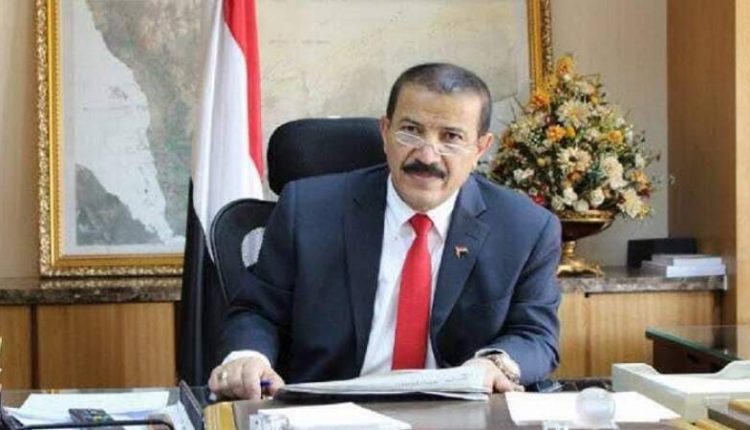FM: US-Saudi Aggression If Serious about Peace, Must Prove That on Ground
The Minister of Foreign Affairs Hisham Sharaf sent written letters to all representatives of countries, heads of delegations and foreign ministers participating in the 76th session of the UN General Assembly.
“For the seventh year in a row, world leaders are meeting at the United Nations to discuss many issues of concern to humanity, while the Yemeni people are still suffering from brutal military aggression and a comprehensive unjust siege that has created the worst human-made humanitarian catastrophe since the founding of UN,” the letters read.
Sharaf stressed that what the Republic of Yemen is suffering from is not an internal conflict or civil war, as the US-Saudi aggression is trying to portray to the world, but rather it is a military aggression and a land, sea and air blockade in contravention of all international covenants and the Charter of the UN.
The Minister of Foreign Affairs indicated that the countries involved in the aggression are waging a war of extermination and systematic destruction of everything in Yemen under a flimsy pretext. Their allegation is to restore the Saudi-backed government, which is being held in hotels in Riyadh.
“The US-Saudi aggression against Yemen has hidden goals and agendas that it is working to implement, taking advantage of the greed of individuals loyal to it,” he said.
Sharaf pointed out that one of those goals is to find a foothold inside the Yemeni lands and islands for foreign military forces with the aim of occupying and exploiting many strategic sites.
Minister Sharaf touched on the efforts of the countries of aggression to stir up regional strife and inflame permanent conflicts among Yemeni society, and to dismantle the country popularly and geographically.
“‘The aggression also seeks to support, arm and finance many terrorist organizations and groups, integrating some of them into the security and military formations it established,” Sharaf added. “Riyadh and Abu Dhabi use these groups to threaten the unity of Yemen and international peace and security in the Bab Al-Mandab region and the southern Red Sea.”
He pointed out that one of the hidden goals of the aggression is targeting the civilized history of the Yemeni people, which extends for more than five thousand years. “The air raids targeted historical and archaeological sites such as the old cities of Sana’a, Zabid, the historic Marib Dam and others.”
The Minister of Foreign Affairs stated that Sana’a had received many letters from a number of brotherly countries regarding stopping targeting the Saudi depth, forgetting that the Yemeni people are being bombed on a daily basis and suffer severe suffering as a result of the comprehensive siege. “Human logic, the Charter of the United Nations and all the heavenly treaties and laws affirm the right of the Yemeni people, the Army and Popular Committees to respond and defend the citizens and the sovereignty of the country.”
He stressed that the Supreme Political Council and the National Salvation Government are serious about moving towards a just and honorable peace for the Yemeni people.
“If the countries of aggression are serious about what they declare their desire for peace, they must prove that on the ground,” Sharaf added.
The Minister of Foreign Affairs stressed that the countries of aggression should send a real message to the Yemeni people by not linking the suffering of the people to the political and military issue. They should work first to address the humanitarian and relief issue.
“By reopening Sana’a International Airport to all civilian commercial flights, not obstructing the entry of ships loaded with fuel ships and arranging the payment of salaries for all state employees without discrimination, the countries of aggression will provide the appropriate situation for a ceasefire by all parties.” he said. “That will make the necessary arrangements to start entering into negotiations for a peaceful political settlement that serves the Yemeni people and enhances security, peace and stability throughout the Arabian Peninsula and the Gulf region.”

